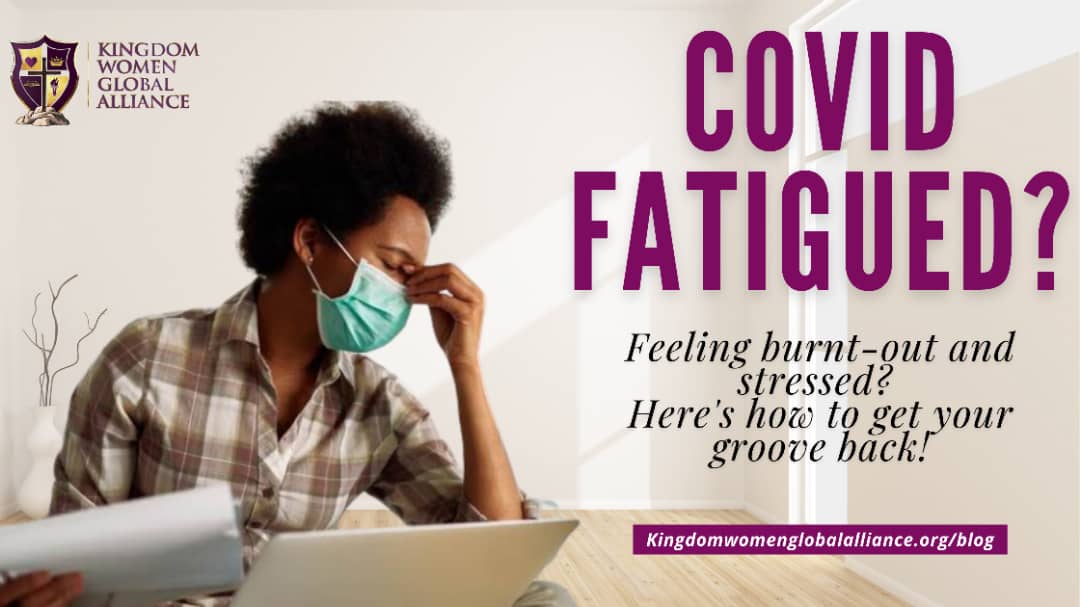
COVID FATIGUED?
Since the pandemic hit in March 2020 and the whole world shut down, we have all had to adapt how we work, study and conduct our businesses to suit the requirements of our new contactless society. For some people, this has meant countless hours on Zoom/Teams/Google Hangouts and other video conferencing software that we all have suddenly become proficient at using, thanks to COVID-19.
Not only that, personal interactions with staff, colleagues, friends and family also dwindled to the barest minimum over the last year. Social distancing rules which restricted the number of people that can gather at indoor events led to many offices adopting the “work from home” policy for staff members. Many businesses transitioned to online sales and marketing of their products as physical stores could no longer open until lockdown rules were relaxed by the government.
If you are like me, there was a sense of tiredness of all the restrictions that I began to feel at the beginning of this year. Suddenly, I was tired of rolling out of bed to sit at my desk every morning, I was tired of the physical distancing rules and being unable to visit friends and family even though we lived in the same state. While discussing with a colleague, I found out that what I was feeling was normal and have now been termed “COVID fatigue” by the experts.
So, what is COVID-19 Fatigue? This is a feeling of unexplained exhaustion, lack of motivation, overwhelm, frustration that life is not back to normal – generally, emotional exhaustion.
Why do we feel COVID-19 Fatigue? According to the AMITA Health Center for Mental Health, we feel COVID-19 fatigue because our bodies are trained to have a fight or flight response to a stressor like COVID-19. There are typically four possible responses – Fight (resist the threat); Flight (Evade the threat); Freeze (become paralyzed in the face of the threat) and Faun (Give in to the threat). Typically, stressors are temporary, not permanent in nature, and they trigger our fight or flight response which we can overcome by using a variety of coping skills. However, COVID-19 as a stressor has gone on for a much longer period than the typical stressor, and so instead of our bodies responding with the fight or flight response, we are getting to the freezing or fauning stage, which then manifests as COVID fatigue.
Enough said about what or why, how do we deal with and overcome COVID Fatigue?
- Acknowledge that what you are feeling is a normal emotional response to the pandemic changes.
- Be compassionate with yourself. Be kind in your expectations. Don’t expect perfection and set realistic goals.
- Maintain a routine. Having a set schedule helps to give you a sense of normalcy and control in the midst of so many changes.
- Talk about it. Reach out to people, don’t isolate yourself. Find a trusted friend, family member or trained professional to talk to about how you are feeling. Find ways to stay connected with loved ones.
- Get moving. Even a simple walk for 15-20 mins can help release endorphins, which relieves stress and boosts our sense of pleasure. If it’s cold outside or raining, try a YouTube workout video, or sign up for a coaching plan.
- Practice Gratitude. Spend time each day reflecting on all the good things that have happened to you. A little positivity goes a long way in fighting the gloom.
- Identify an activity you can do each day/week that you look forward to – Be intentional about practicing self-care. Take part in activities that you enjoy. For example, going outside for a walk, dancing, journaling, connecting with friends and family, creating a “me-time” for yourself, soaking in a bath tub with music and scented candles doing their job (you get the drift) or even picking up a book you’ve planned to read.

- Seek out people or things that make you laugh e.g. TV shows, comedy or phone calls with friends/family.
- Get enough sleep and eat a healthy diet.
- Ask for help. If you have tried all you can alone and still feel overwhelmed, it’s okay to reach out to your loved ones for help and support. Everyone is going through the same thing and reaching out will not only help you manage your own anxiety but help your loved one/family to have a safe place to share their own experiences as well.
Writer: Tomilola Adebiyi